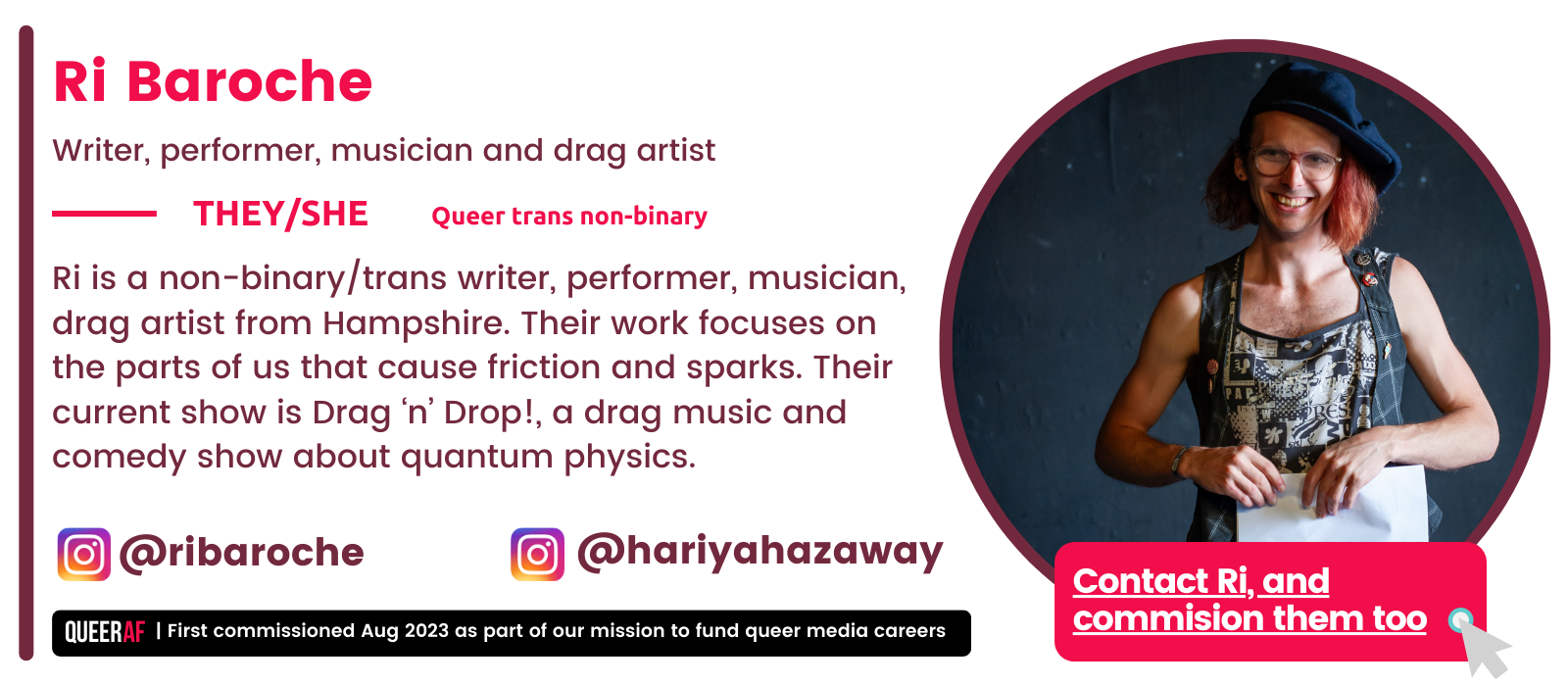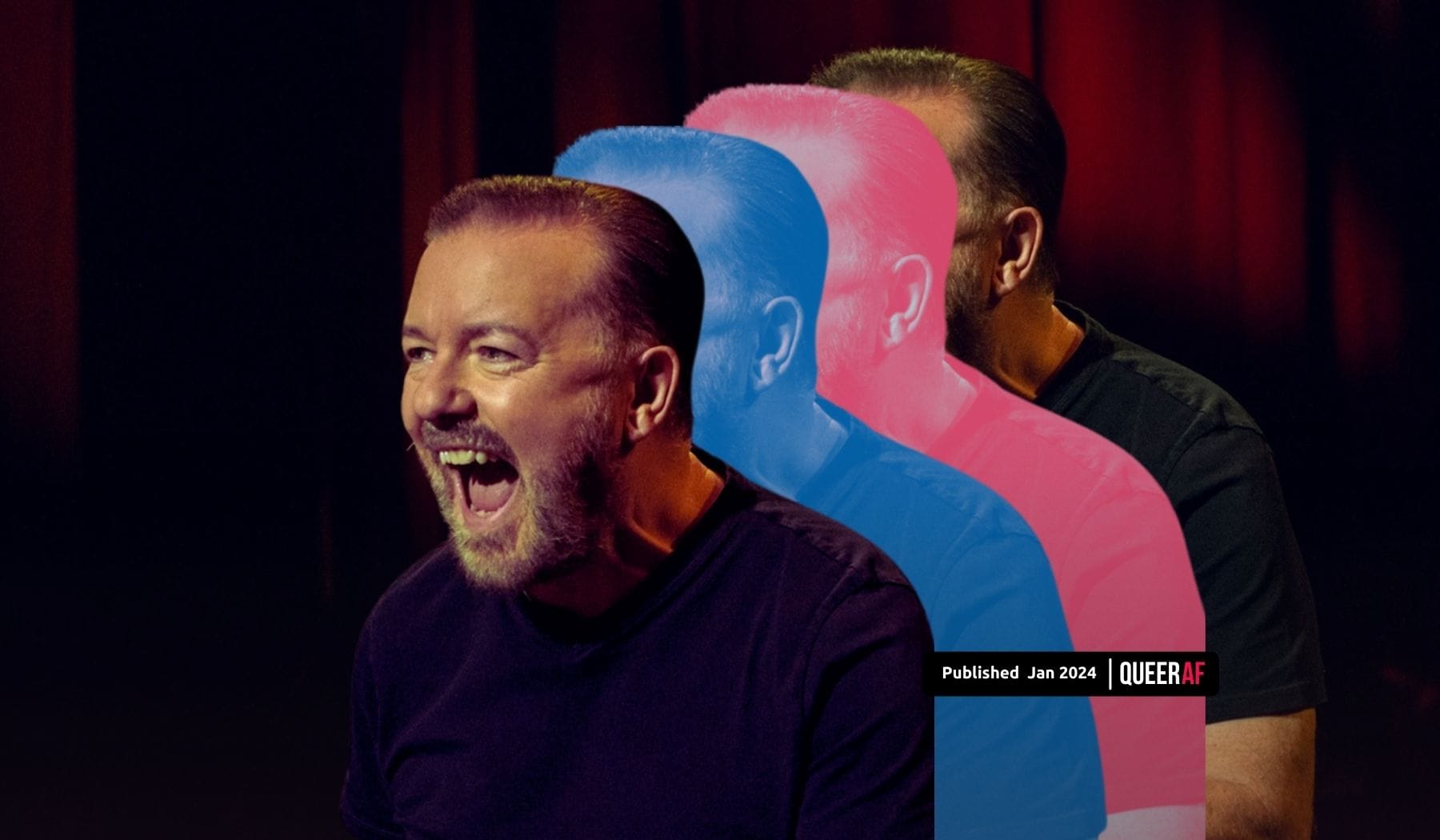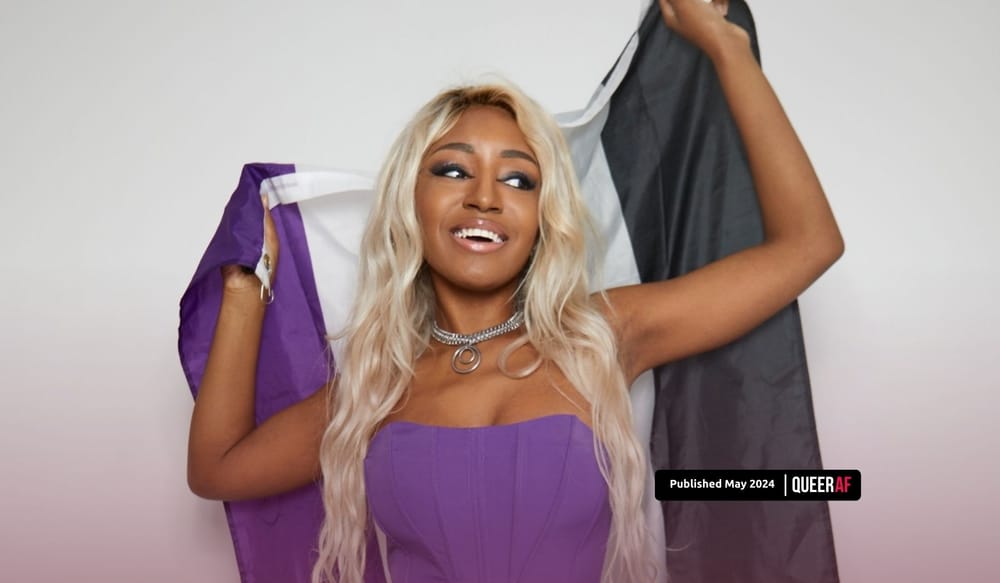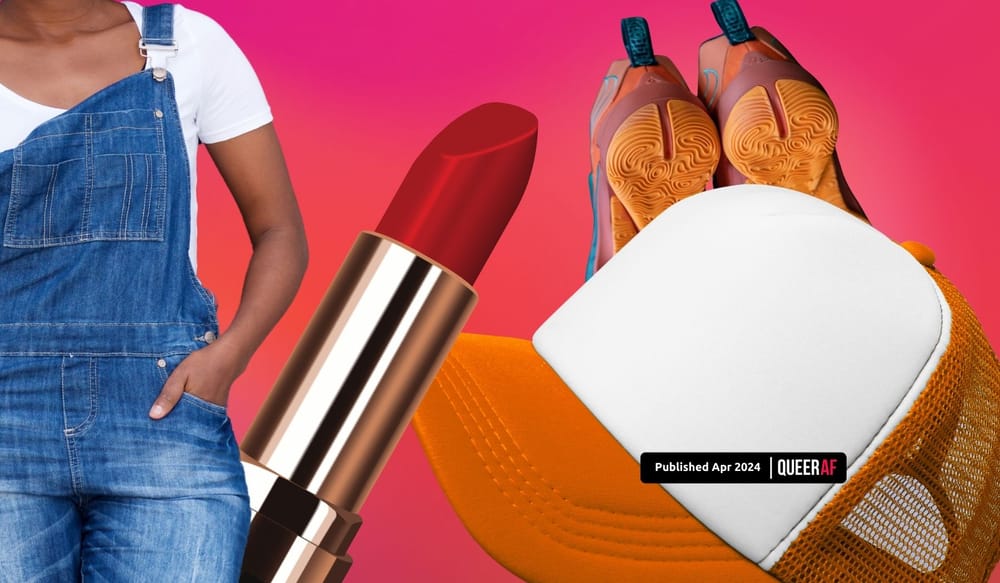
I used to defend Ricky Gervais.
I thought the Ricky Gervais of sitcom fame was the ‘real’ Ricky, not the reactionary blowhard of his stand-up specials. I have friends outside of the queer community who like his work, so I would always try to see the other side.
His sitcoms The Office, Extras and Afterlife bring humour and humanity to big, unwieldy topics. But the same certainly cannot be said for the standup style he made (in)famous with 2018’s Humanity.
His latest offering, Armageddon, makes for really strange watching. I knew it would hit all the same buttons as previous specials, but I just came away feeling confused.
He seems to want it both ways: to claim he’s a nuanced person whilst in the same breath laughing at minorities. His focus at this stage seems luridly obsessive. At one point, he says, “I’ve been looking into child mortality rates. For research, it’s not a fetish.” Really?
There’s a chilling parallel with the defences of Andrew Tate’s firebrand masculinity. In the recent Channel 4 documentary I Am Andrew Tate, a Tate devotee explains why a video in which he vividly simulates domestic abuse of a female partner is supposedly funny. Apparently - disgustingly - it’s precisely the beating and the choking you’re supposed to laugh at.
The viewer is supposed to pretend it’s all harmless, make-believe, that this violent behaviour has no real-life consequences. It effectively gaslights the audience of their own experience.
But Tate’s videos do have real-world consequences. Female teachers are experiencing misogynistic behaviour or worse from their male pupils, often with direct references to Tate’s language.
Gervais’s humour has consequences as well. In Armageddon, Gervais references the user-led site Does The Dog Die?, which offers helpful trigger warnings about the content of films. It led his ‘anti-woke’ fans to flock to the site and troll users for being “too sensitive”.
In cases like this there is a clear paper trail showing the impact of comments that Gervais insists are “just jokes”. They embolden his fans to attack the subject of his ‘humour. This is when his “it’s just a fictional person” defence loses credibility.
“You can’t choose your thoughts”, Gervais tells us. He imagines standing on a train platform and thinking, “What would happen if I pushed that person onto the tracks?” We are all capable of thoughts we’d never act on; that’s the joke.
But he fails to make the obvious connection: airing his toxic thoughts is equivalent to pushing unsuspecting people into harm’s way.
Gervais jokes that he’s “learned [his] lesson” after Super Nature became the most-watched Netflix special of the year. Presumably, that lesson learned is that cheap jokes that punch down without considering their consequences can make money and garner attention.
That’s hardly a revelation, though; newspapers have been guilty of that practically since the first printing press.
It feels like he could’ve learned a different lesson. For me, the most compelling part of Armageddon was the closing plea to address climate change and the destruction of the planet.
But does he make fun of the powerful elite causing this? Or challenge the status quo in a way that doesn’t rely on cheap jokes? Sadly, he’s no George Carlin. It feels like a painfully ignored opportunity to use comedy as an uplifting force for good, as he did in Afterlife, finding light and humour in grief and the impact of dementia.
Much attention has been paid to Gervais and similar comedians’ ‘jokes’ about being transgender. You could be forgiven for thinking that transphobia and mainstream comedy cannot be separated.
It was the Instagram algorithm that corrected me this time. It drew my attention to a hilarious series of jokes by Northern Irish comedian Marc Jennings, a cis straight man using his own experience growing up in Northern Ireland to offer an unexpected take on being trans. Or you could look to English comic Sarah Keyworth and their revelation of new pronouns from the OED.
As Gervais himself says, comedy helps us get through the most challenging times in life. It is possible to make jokes about today’s society - and the issues we face - and be funny, clever and, crucially, humane.
Ricky Gervais simply chooses not to.

Get the Queer Gaze in your inbox each week with our free weekly newsletter or pitch to write an edition for us now.
QueerAF members are critical to our sustainability.
Our unique approach to commissioning means you're in charge of what we make. It means we're focused on what matters to you, not advertisers or other outside pressures.
QueerAF members include the likes of senior media professionals, queer business owners, and LGBTQIA+ community leaders.
But really they're just a bunch of queer folk who care about our community and how we're portrayed and misrepresented in the media. Do you?
Because our members not only fund our journalism - they also choose what we create.
We believe there’s a better way to be seen, heard and celebrated. Join us to change the media for good.











